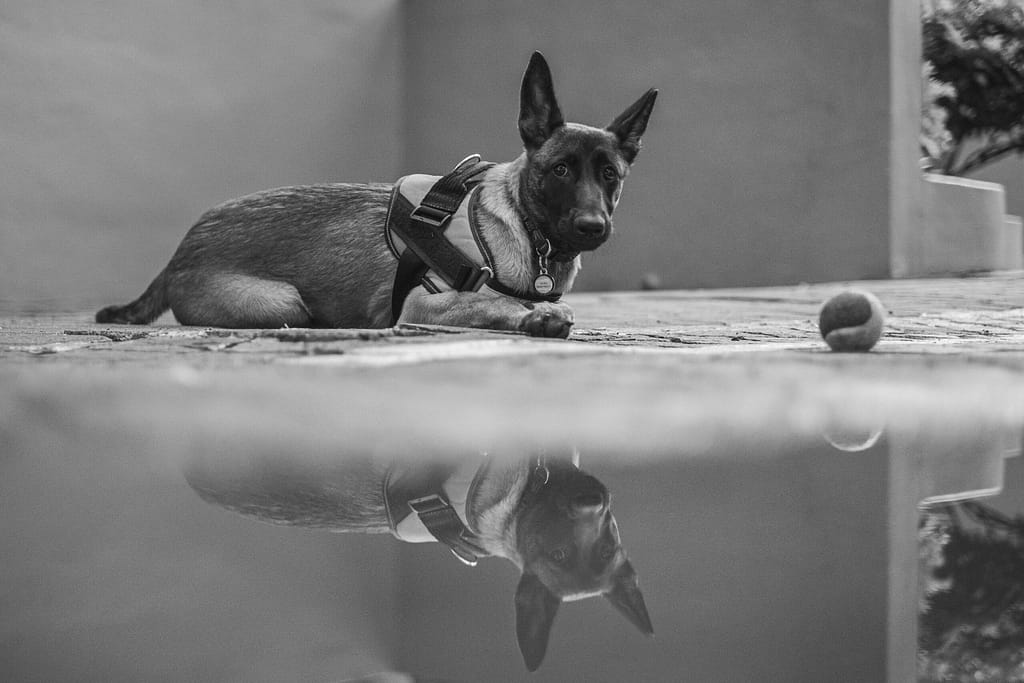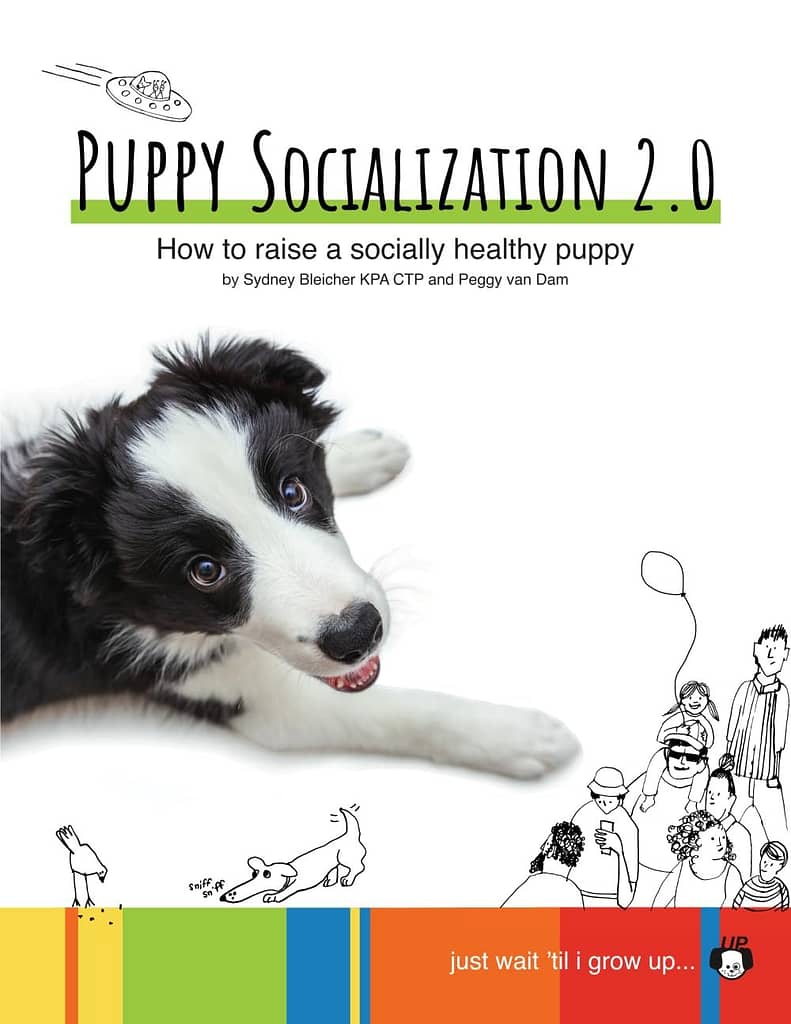
Understanding Puppy Socialization
Puppy socialization is a crucial process that involves exposing young dogs to a variety of experiences, environments, and individuals in a controlled and positive manner. This early interaction plays a significant role in shaping a puppy’s temperament and behaviour as it matures into adulthood. During the early stages of development, specifically between the ages of three to fourteen weeks, puppies are in a sensitive period for socialization. This timeframe is marked by heightened receptiveness to new experiences, making it an ideal window for introducing them to numerous stimuli, including people, environments, sounds, and other animals.


The importance of socialization during these formative weeks cannot be overstated. Puppies that receive appropriate exposure during this period are generally more adaptable and confident, ultimately reducing the likelihood of developing fears and anxieties that can lead to aggressive behaviours. For example, a well-socialized puppy might comfortably engage with a wide array of people, reducing the chances of fearful reactions in unfamiliar situations. Conversely, inadequate socialization can make a puppy more prone to behavioural issues, marked by a tendency towards fear and aggression, which could severely impact its quality of life.
Moreover, the psychological benefits associated with proper socialization help foster a well-adjusted adult dog. Socialization enhances a dog’s ability to learn new commands and behaviors, as it becomes more receptive to training and guidance from its owner. Engaging in diverse experiences can also enhance a dog’s confidence, leading to a healthier mindset and greater enjoyment of life. Owners should prioritize introducing their puppies to various environments and social situations to ensure their furry companions grow into friendly, well-rounded adults. An investment in socialization today can lead to a happier, more balanced dog in the future.
Best Practices for Socializing Your Puppy
Successfully socializing your puppy is crucial for their development and well-being. A gradual exposure approach is essential; it allows your puppy to experience various environments, sounds, smells, and situations without feeling overwhelmed. Start by introducing your puppy to different areas within your home and yard before venturing too far. Once your puppy is comfortable at home, begin to explore your neighbourhood, local parks, and other public spaces. Remember, the objective is to make these experiences enjoyable for your puppy while fostering confidence.
Positive reinforcement plays a pivotal role in effective socialization. Whenever your puppy encounters something new, such as a person, dog, or environment, use treats, praise, or play to reward calm behaviour. This encourages your puppy to associate positive feelings with novel experiences, which can significantly reduce fear or anxiety in unfamiliar situations. Keeping rewards handy will help facilitate this training process. Over time, your puppy will learn that new experiences are not only safe but also enjoyable.


Introducing your puppy to other dogs and various people should be done cautiously to ensure safety and comfort. When meeting other dogs, consider scheduling playdates with friendly, vaccinated dogs that have been known to be well-socialized. Observe your puppy’s body language: signs of comfort include a wagging tail and playful behaviour, while tucked tails or cowering indicate stress or unease. Should your puppy display these signs of discomfort, take a step back and allow your puppy to retreat or engage at their own pace. This recognition of stress signals is critical to fostering a positive socialization experience.
If your puppy seems overwhelmed, avoid forcing interaction. Instead, provide a safe space where they can feel secure. Gradually reintroduce elements that cause unease, using positive reinforcement with each successful encounter. With patience and consistency, you can transform socialization into a rewarding experience for both you and your puppy, resulting in a well-adjusted, confident dog.
Socialization Activities and Recommendations
Puppy socialization is a critical aspect of a dog’s overall development. Engaging puppies in varied activities fosters their adaptability and confidence, leading to well-rounded adult dogs. Organized puppy playdates are a fundamental way to promote social interaction among dogs. These gatherings allow puppies to engage in healthy play, teaching them important social cues and boundaries while developing their communication skills with other dogs.
Puppy classes, often led by professional trainers, serve as another beneficial platform for socialization. These classes expose puppies to various stimuli while offering structured activities that promote learning and engagement. Trainers not only teach basic commands but also facilitate interactions among puppies, reinforcing proper behaviours and reducing instances of fear or aggression towards other dogs or people.
Visits to pet-friendly public spaces such as parks, stores, or cafés provide invaluable exposure to diverse environments. During these outings, it is important for puppies to encounter various sights, sounds, and smells. This experience helps them acclimate to different situations, preventing potential anxiety in the future. Furthermore, it is essential to introduce puppies to a range of individuals, including children, seniors, and individuals of various ethnicities. These interactions will help normalize their understanding of diverse experiences.
Additionally, providing your puppy with exposure to different surfaces, like grass, concrete, and wood, can further enhance their socialization. This exposure aids in creating a well-adjusted dog that navigates various environments with confidence. For those looking to refine their puppy’s socialization skills, numerous resources are available. These include local trainers who specialize in socialization techniques and online courses designed for new dog owners, ensuring that they find suitable options tailored to their puppy’s specific needs.
Common Mistakes During Puppy Socialization
Puppy socialization is a critical process that significantly influences a dog’s behaviour as they mature. However, new dog owners often make common mistakes that can create long-lasting negative effects on their puppies’ development. One significant error is over-socializing the puppy too soon. This occurs when the puppy is exposed to numerous new experiences simultaneously, which can lead to sensory overload. Instead of benefiting from various interactions, the puppy may become anxious or fearful. It’s essential to introduce new stimuli gradually to ensure that each experience is positive and manageable.
Another mistake many owners make is rushing the socialization process. Socialization is not a sprint but rather a marathon that requires time and patience. Owners may feel inclined to expose their puppies to as many environments, people, and dogs as possible over a short period. Such intensity can lead to feelings of stress for the puppy, hindering their natural curiosity and open-mindedness. A steady progression with a focus on quality interactions, rather than quantity, is crucial. Puppy training should include a variety of settings and individuals, ensuring each encounter is enjoyable and rewarding for the puppy.
Exposing puppies to frightening or negative experiences is another common pitfall. Situations such as aggressive dogs, loud noises, or crowded areas can cause long-lasting trauma. It’s vital to shield puppies from overwhelming encounters while still allowing them to experience new things. Creating a positive environment through controlled exposure and the right amount of encouragement can prevent negative associations with socialization. Owners should be mindful of their puppy’s comfort and should remove them from unexpected fears. Patience, consistency, and a well-thought-out approach to puppy socialization will result in a well-rounded and confident dog.
Why not try our “When to Start Training Your Puppy: A Comprehensive Guide” Click here.
Helpful Links.
UK Kennel Club: The UK’s largest organisation dedicated to protecting and promoting the health and welfare of all dogs.
RSPCA: The Royal Society for the Prevention of Cruelty to Animals provides advice and support for pet owners
Dogs Trust: The UK’s largest dog welfare charity, offering rehoming, education, and campaigning.
Blue Cross: A veterinary charity providing care for sick, injured, and homeless animals.
National Animal Welfare Trust: A UK charity providing care for animals in need and promoting responsible pet ownership.
Battersea Dogs & Cats Home: A UK charity providing rehoming, veterinary care, and education for dogs and cats.






